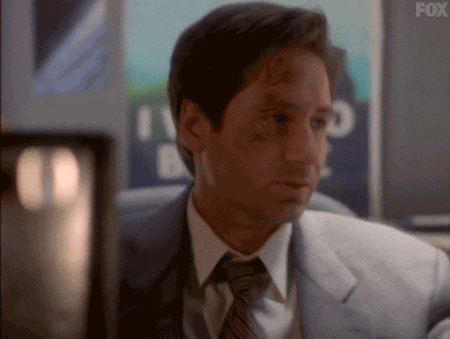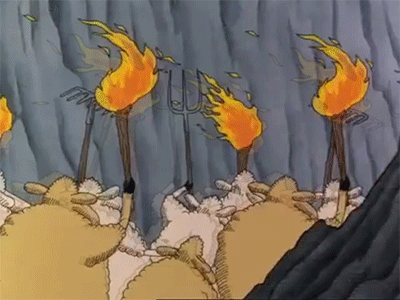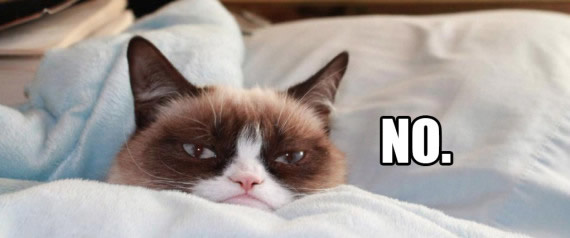You know, I wish we didn’t need to have this conversation, but yeah, we do.
 Everyone has their own way of dealing with reviews, and let’s be frank—not everyone will like what you do. Reviews, good or bad, are part of the territory. Reviews are a rite of passage for authors, the objective points-of-view that sit down with the final product and say, “Holy crapbuckets, this is the best book I’ve ever read!†or “Many trees died to make this book. Avenge them.†Whenever a new work hits the shelves, virtual or literal, I am always on edge. You have been working closely with editors and peer readers who all invest a part of themselves in your title because they believe in what you do; and if you are fortunate, these voices because they believe in you are going to be blunt, honest, and sometimes cruel to be kind. “My job as an editor is not to change a book,†I heard Ellen Datlow say on a podcast. “My job is to take a good story and make it great.â€
Everyone has their own way of dealing with reviews, and let’s be frank—not everyone will like what you do. Reviews, good or bad, are part of the territory. Reviews are a rite of passage for authors, the objective points-of-view that sit down with the final product and say, “Holy crapbuckets, this is the best book I’ve ever read!†or “Many trees died to make this book. Avenge them.†Whenever a new work hits the shelves, virtual or literal, I am always on edge. You have been working closely with editors and peer readers who all invest a part of themselves in your title because they believe in what you do; and if you are fortunate, these voices because they believe in you are going to be blunt, honest, and sometimes cruel to be kind. “My job as an editor is not to change a book,†I heard Ellen Datlow say on a podcast. “My job is to take a good story and make it great.â€
When the public grabs hold of your book, though, they are coming into it cold. They are not as invested as you and your support crew are, and the public’s opinions are unbiased, unfiltered, and uncompromising. Now with blogging, Goodreads, and Amazon, everyone has an opportunity to share those unbiased, unfiltered, and uncompromising opinions. When I read a good review, I breathe a sigh of relief. I did something right, and the audience “got†what I was aiming for. It really is a beautiful thing.
But good reviews do not guarantee you’re going to avoid the bad ones.
 No one likes bad reviews. It always feels like a punch in the privates as you have poured a lot of yourself into a book. Bad reviews, whether openly admitted or not, remain a major obstacle with those writers who have a book, possess talent, and offer a great story to tell; but sadly, they are afraid that they will get a bad review. Rejection from on a high plane than the rejection of editors and agents, apparently.
No one likes bad reviews. It always feels like a punch in the privates as you have poured a lot of yourself into a book. Bad reviews, whether openly admitted or not, remain a major obstacle with those writers who have a book, possess talent, and offer a great story to tell; but sadly, they are afraid that they will get a bad review. Rejection from on a high plane than the rejection of editors and agents, apparently.
Here’s an inconvenient truth—yes, you will get a bad review. People will read your book and not care for it. Their opinion does not mean you are a terrible writer. In fact, a good “bad review†may give you insight that you can apply to your next work. There are some book bloggers and critics that take what they do very seriously and recognize a story that could have been better.
Now how can I make this inconvenient truth even more terrifying to you? Oh yeah, some of these bad reviews will come from people who have never read your book. The review that inspired this blogpost, for example, described The Diamond Conspiracy as…
“Every Victorian horror trope dragged out: Dr. Jekyll and Mr. Hyde, Frankenstein and his monster, fearless female and timid bookish (but handsome and manly) men…â€
Now how do I know by this selection that this particular book critic hadn’t even cracked the spine of The Diamond Conspiracy? While Jekyll is a player in our universe (and has been since The Janus Affair) we never use the name “Mr. Hyde†until Book Five.
Yes, the book we are currently editing.
Then there is Eliza’s and Wellington’s description as “fearless female and timid bookish (but handsome and manly) men†which, when you look at The Diamond Conspiracy, isn’t really…accurate. Eliza is struggling to keep it together as she is smuggling children across Europe. Fearless? No, we explored a bit of self-doubt on this adventure. Meanwhile, Wellington is trying to step up and keep everyone around him safe. Timid? Definitely in Book One. Somewhat in Book Two. But by Book Four?
The real tell, though, is the Frankenstein reference. Page 80…of Dawn’s Early Light. Book Three.
So why not rebuttal a review from someone who took a swing at our hard work without even reading it? Because that’s the cost of taking a chance, putting your words in print, and offering them to the wide world out there.
Don’t worry, Chuck. Pip can do amazing things with lamb.
But when authors freak out, it accomplishes nothing. Well, that’s not entirely true—when authors freak out against bad reviews, it makes the freaking-out author look like a right douchewanger. Openly confronting critics also makes your peers roll their eyes and frantically tweet #notallwriters. It’s frustrating that there are writers out there who think it’s a good idea to educate a book blogger or critic because clearly this book blogger or critic, after a few words from you, will say “Oh, I see, so that was what I got wrong on reading your magnum opus. Well, forgive me, wizened author, let me just go back and…â€
Bad reviews are part of the business, and you have two ways of reacting to them—either as a professional, or as a douchewanger. And hey, let me help you out with telling the difference between the two. One of these is you reading a bad review, and maybe having a good laugh at the reviews that are clearly written by basement dwellers whose reviews sound like high school book reports written with the help of Cliff Notes. Maybe you take the frustration you are feeling and channel it into promotion for your next book…

…or you go on to your blog and rant a bit.
*ahem*
Whatever you do in light of bad review, you don’t take the fight to them. This is not First Blood. You are not Rambo. This is not payback. This is your reputation as a professional and your brand that should be professional from beginning to end. You’re not going to be perfect. No one expects that. When a bad review goes live, though, you have a choice.
Make sure that choice is the one that has you standing by your words, and turning back to the words yet to come because you, my dear pro author, got stories to tell.


